Brake Caliper Overhaul Front Delco
Removal Procedure
Tools Required
| • | J 24548 Piston Ring Compressor |
| • | J 36474 75 mm Boot Seal Installer or |
| • | J 36475 80 mm Boot Seal Installer or |
| • | J 38453 86 mm Boot Seal Installer |
- Remove the fluid from the caliper.
- Remove the brake pad. Clean the interior of the caliper with clean shop towels.
- Remove the piston.
- Remove the boot using care not to scratch the housing bore.
- Remove the piston seal with a nonmetal type of tool.
- Remove the bleeder valve.
- Use denatured alcohol in order to clean the following parts:
- Replace any piston with the following conditions:
- Replace any caliper bore or seal groove with the following conditions:
Caution: Do not place your fingers in front of the piston in order to catch or protect the piston while applying compressed air. This could result in serious injury.
Notice: Use just enough air pressure to ease the piston out of the bore. You can damage a blown-out piston even with the padding.
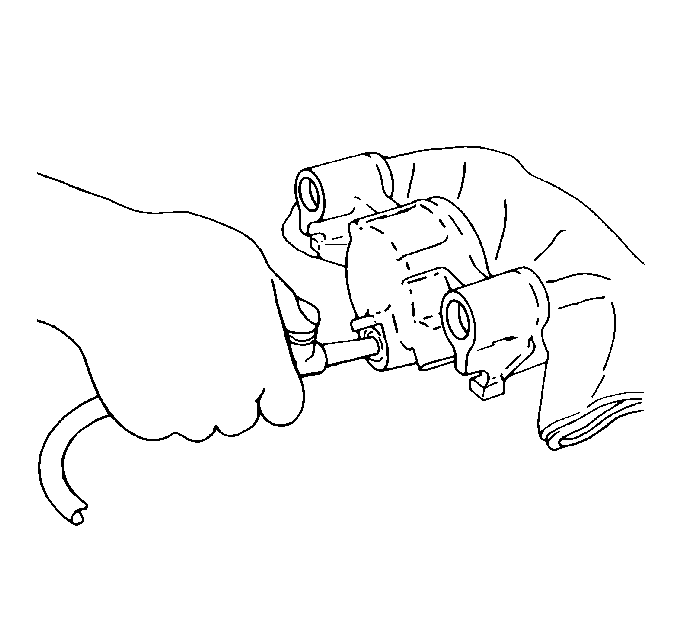
| • | Direct compressed air into the caliper fluid inlet. |
| • | Use just enough air pressure to ease the piston out of the bore. |
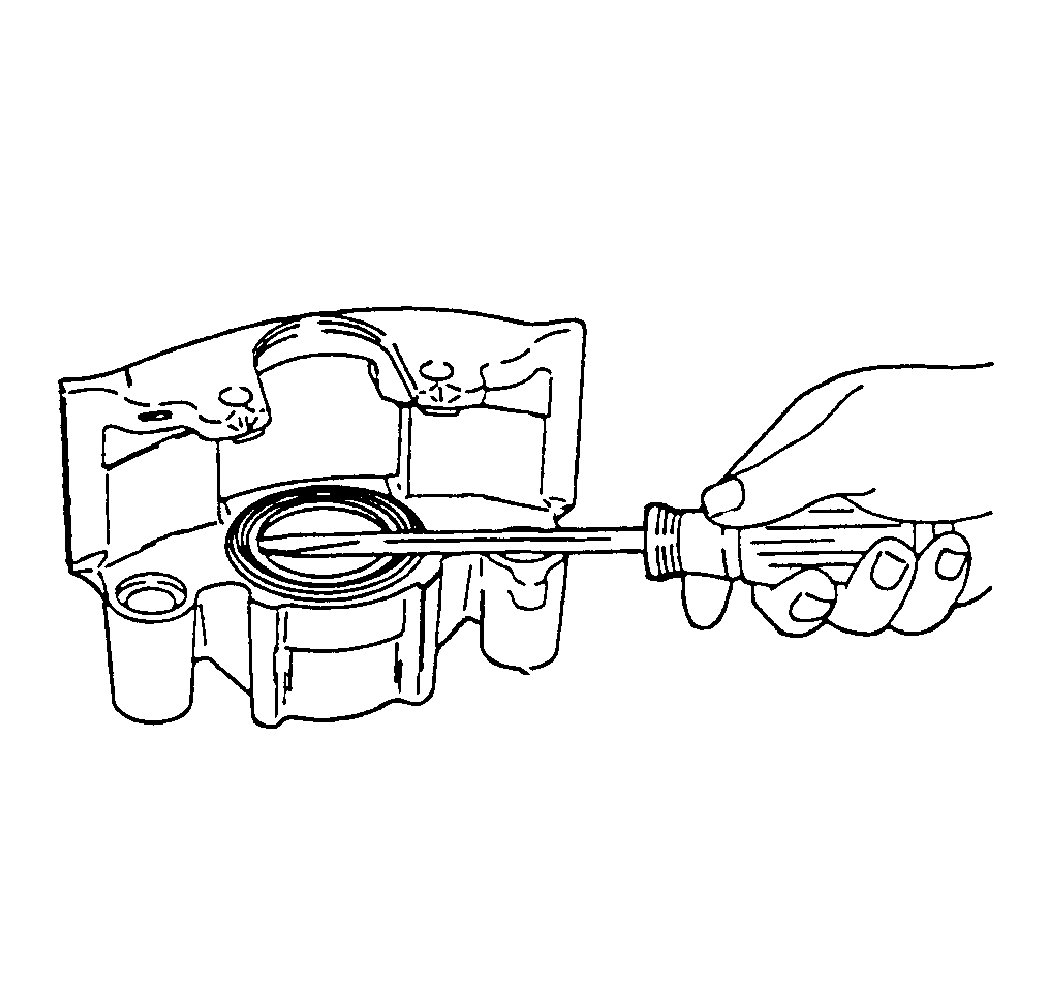
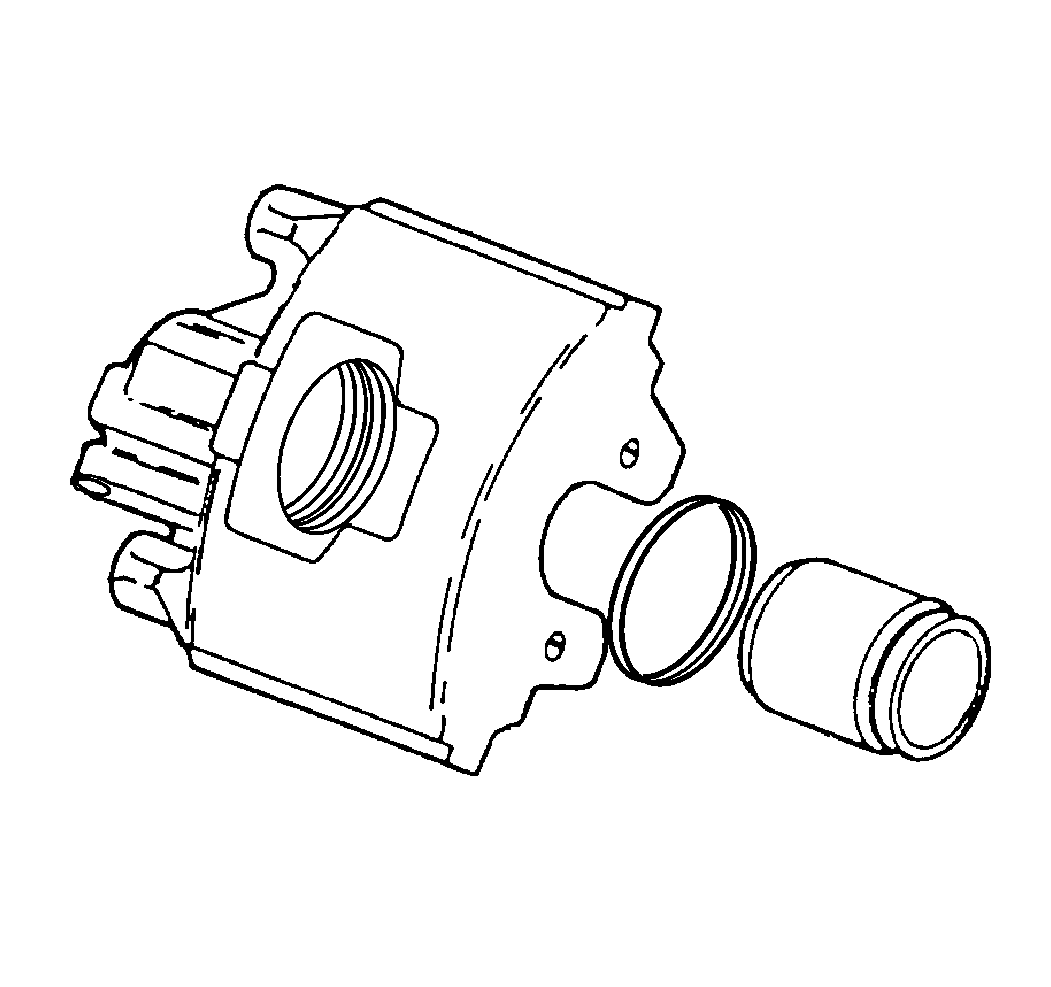
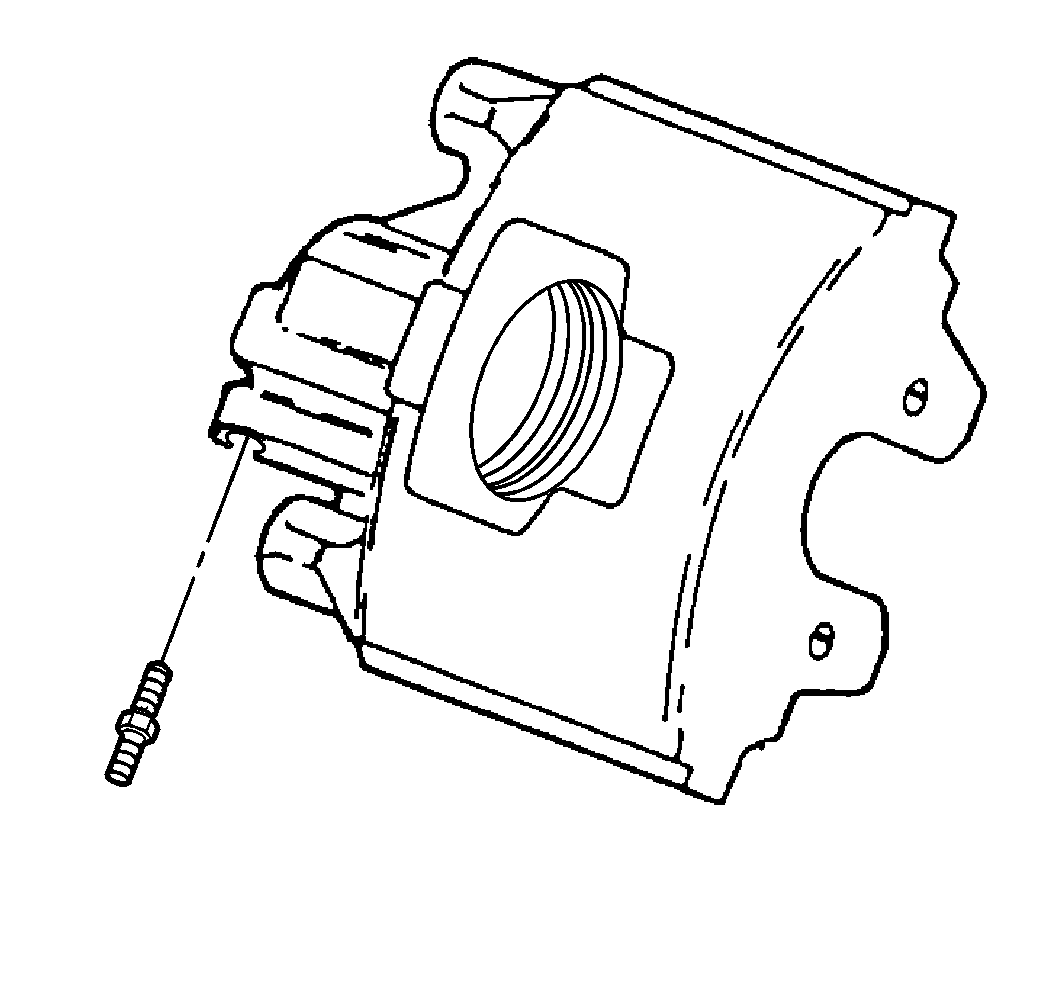
| • | The bleeder valve |
| • | The caliper bore |
| • | The caliper passages |
| • | The piston |
| • | Use dry, filtered, compressed air to dry the parts and to blow out the passages. |
| • | Scoring |
| • | Nicked |
| • | Corroded |
| • | Worn |
| • | Damaged chrome plating |
| • | Scoring |
| • | Nicked |
| • | Corroded |
| • | Worn |
| • | Attempt to remove any light corrosion on the caliper bore or seal groove using a crocus cloth. |
Installation Procedure
- Use clean brake fluid in order to lubricate the following parts:
- Install the piston seal using care not to twist the seal.
- Install the boot on the piston.
- Install the piston and the boot into the caliper bore.
- Push the piston to the bottom of the bore.
- Seat the boot housing usingJ 36474 or J 36475 or J 38453 .
- Install the bleeder valve.
| • | The new piston seal |
| • | The caliper bore |
| • | The piston |

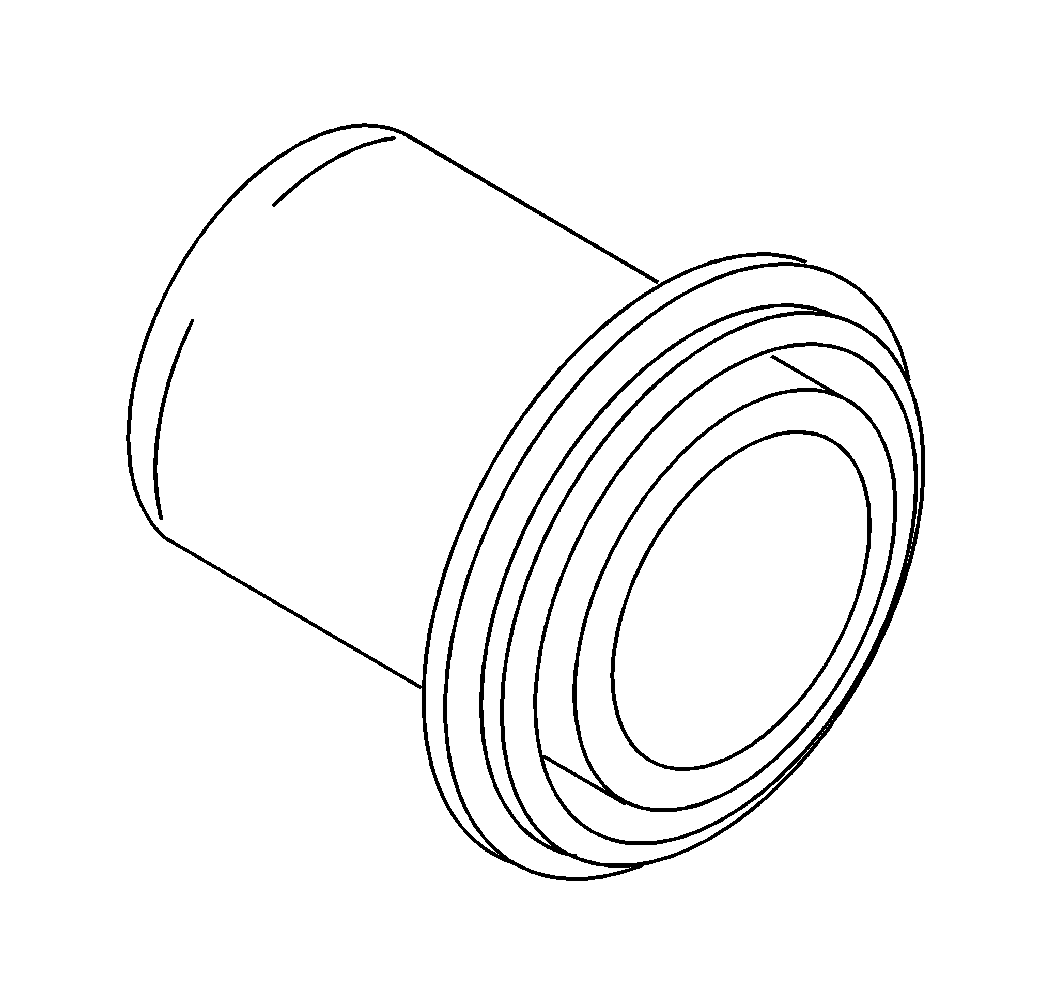
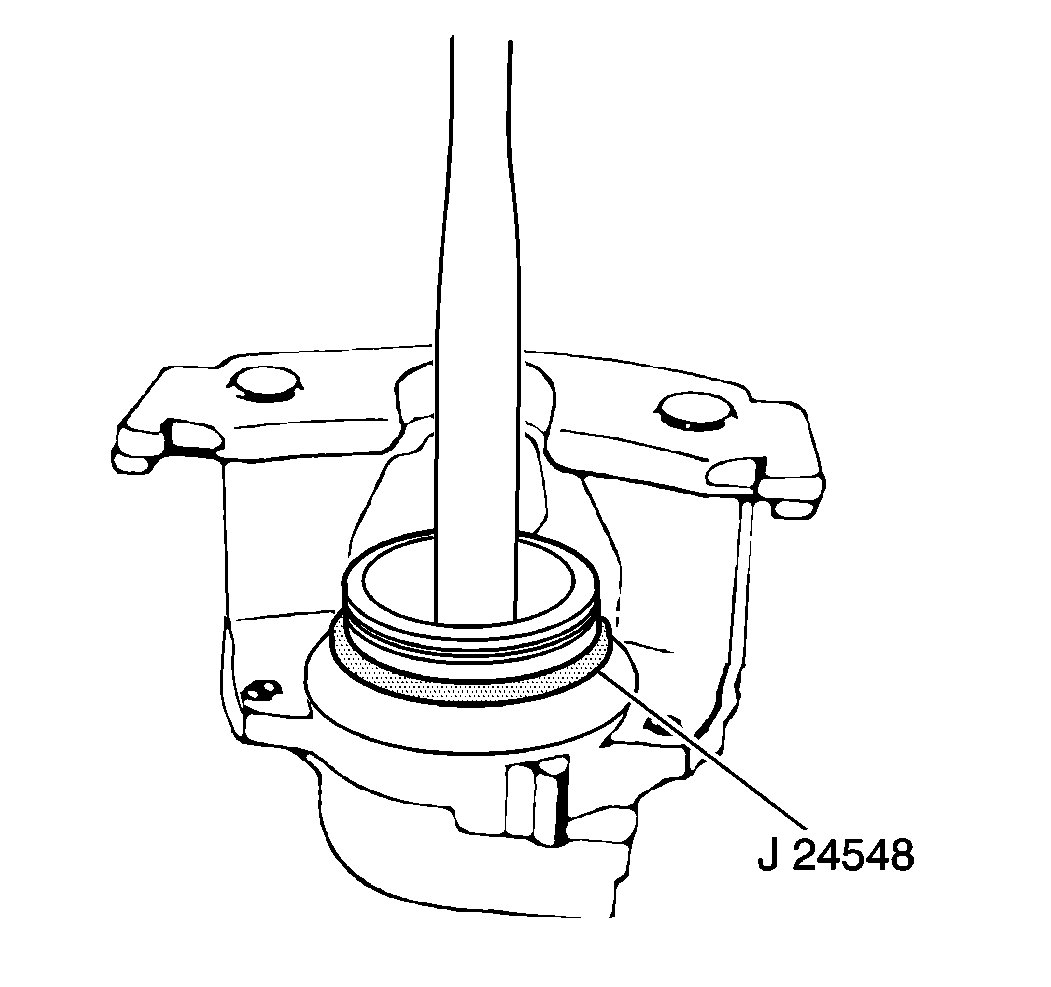
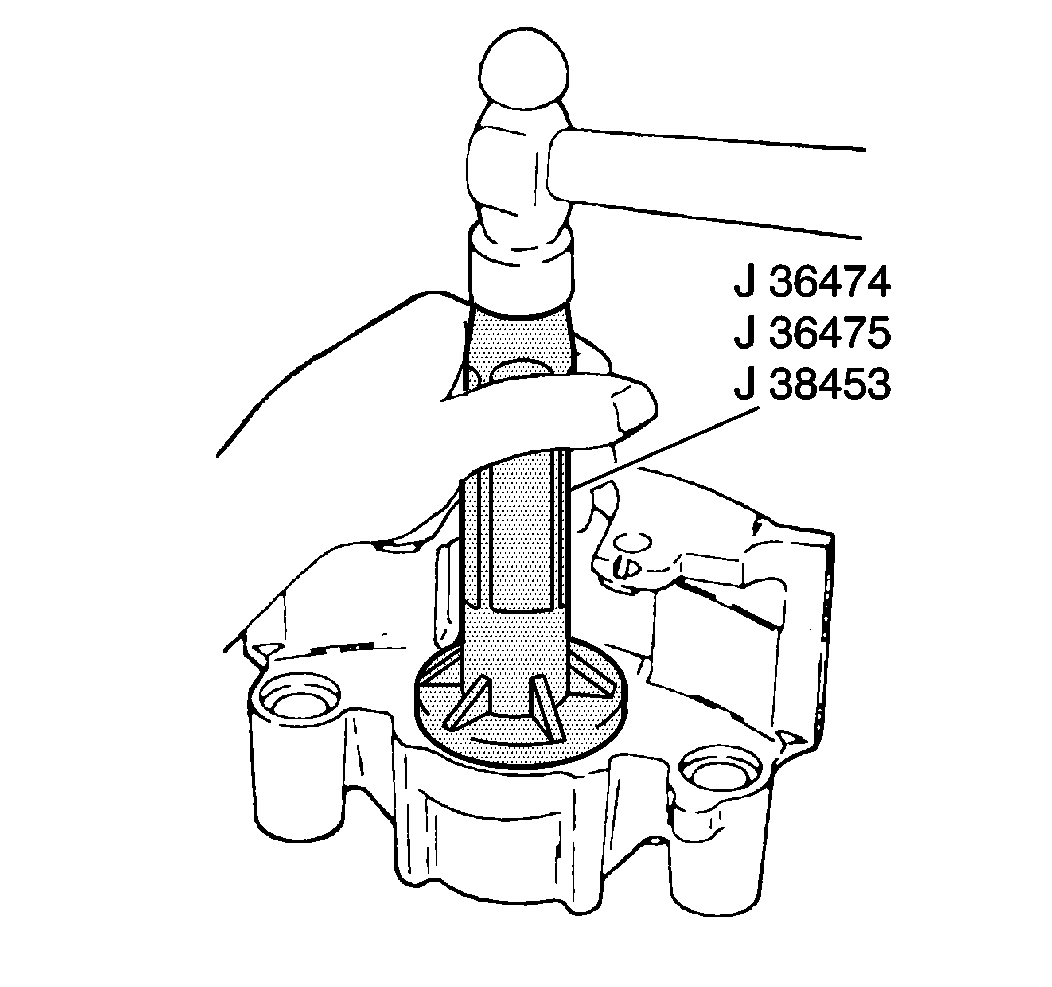

Notice: Use the correct fastener in the correct location. Replacement fasteners must be the correct part number for that application. Fasteners requiring replacement or fasteners requiring the use of thread locking compound or sealant are identified in the service procedure. Do not use paints, lubricants, or corrosion inhibitors on fasteners or fastener joint surfaces unless specified. These coatings affect fastener torque and joint clamping force and may damage the fastener. Use the correct tightening sequence and specifications when installing fasteners in order to avoid damage to parts and systems.
Tighten
Tighten the bleeder valve to 13 N·m (115 lb in).
